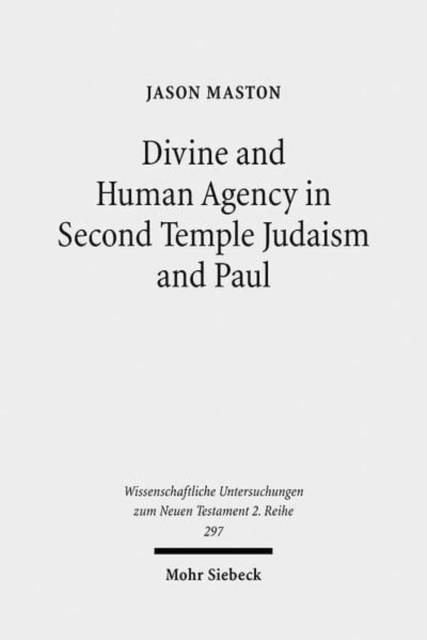
Door een staking bij bpost kan je online bestelling op dit moment iets langer onderweg zijn dan voorzien. Dringend iets nodig? Onze winkels ontvangen jou met open armen!
- Afhalen na 1 uur in een winkel met voorraad
- Gratis thuislevering in België vanaf € 30
- Ruim aanbod met 7 miljoen producten
Door een staking bij bpost kan je online bestelling op dit moment iets langer onderweg zijn dan voorzien. Dringend iets nodig? Onze winkels ontvangen jou met open armen!
- Afhalen na 1 uur in een winkel met voorraad
- Gratis thuislevering in België vanaf € 30
- Ruim aanbod met 7 miljoen producten
Zoeken
€ 72,95
+ 145 punten
Uitvoering
Omschrijving
Recent scholarship on Second Temple Judaism and Paul has maintained that both held salvation to be through God's grace alone, not human obedience. In this study, Jason Maston argues against this trend by demonstrating the spectrum of perspectives available during the Second Temple period regarding the interaction of divine and human actions. Using Josephus' depiction of the Jewish schools as the starting point, he argues that ancient Jews were discussing the issue of divine and human agency and that they were putting forward alternative and even contradictory perspectives. These different viewpoints are shown in Sirach and the Hodayot. Into this spectrum of opinions, the Apostle Paul is situated through an analysis of Romans 7-8. The author challenges the idea that all of Judaism can be explained under a single view of salvation. Recognising the diversity allows one to situate Paul firmly within a Jewish context without distorting either the Jewish texts or Paul.
Specificaties
Betrokkenen
- Auteur(s):
- Uitgeverij:
Inhoud
- Aantal bladzijden:
- 218
- Taal:
- Engels
- Reeks:
- Reeksnummer:
- nr. 297
Eigenschappen
- Productcode (EAN):
- 9783161505706
- Verschijningsdatum:
- 31/12/2010
- Uitvoering:
- Paperback
- Formaat:
- Trade paperback (VS)
- Afmetingen:
- 153 mm x 229 mm
- Gewicht:
- 358 g

Alleen bij Standaard Boekhandel
+ 145 punten op je klantenkaart van Standaard Boekhandel
Beoordelingen
We publiceren alleen reviews die voldoen aan de voorwaarden voor reviews. Bekijk onze voorwaarden voor reviews.











